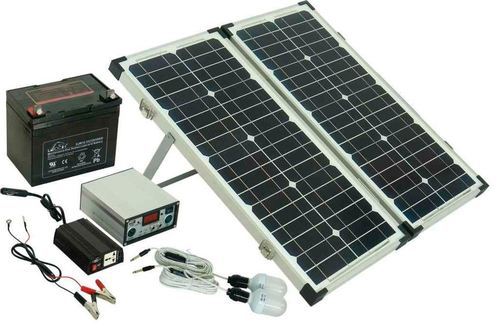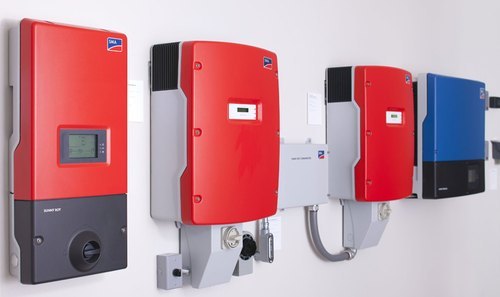Solar Inverters and Charge Controllers
A solar inverter serves as the BRAIN of a solar power system. It manages and regulates the outflows and inflows of electricity to and from other components like solar panels, batteries, electrical appliances and electrical grid.
The electricity generated by solar panels is called Direct Current (DC) while the electricity provided by electrical grid (like K-Electric) is called Alternating Current (AC). AC is needed to provide power to most electrical and electronics equipment. An inverter converts the DC from solar panels (or batteries) into AC that can be used to power all our appliances and equipment.
In case of Grid-Tied systems, inverter is resposible for synchronizing the solar power with the electrical grid and also to supply the surplus energy to the grid, if required.
In case of Off-Grid and Hybrid systems, where batteries are required, a solar inverter also provides the funtionality of a charge controller. Charge controller, as the name suggests, controls and monitors the charging process, charge levels and health of batteries.
Typical service life of good quality solar inverter is usually 10 years.
At Senergies, we understand the importance of reliable and efficient solar energy systems, which is why we provide the Best Solar Inverters in Pakistan. Solar Inverters in Pakistan are crucial for converting the DC electricity produced by solar panels into AC electricity that can be used to power homes, businesses, and industries. The Best Solar Inverters ensure maximum energy efficiency, long-lasting performance, and the smooth operation of your entire solar system.
Choosing the right Solar Inverters in Pakistan can make a significant difference in the overall performance and lifespan of your solar system. Our inverters are equipped with advanced technology, such as Maximum Power Point Tracking (MPPT), which optimizes energy output by adjusting to the sun’s changing conditions throughout the day. This ensures that your solar system works at peak efficiency, providing you with clean and cost-effective power year-round.
In addition to Best Solar Inverters in Pakistan, we also specialize in providing the Best Charge Controllers in Pakistan. Charge Controllers play a vital role in regulating the power flow from solar panels to batteries, preventing overcharging, and ensuring that your battery storage system is optimized for maximum lifespan. Our Best Charge Controllers offer both Pulse Width Modulation (PWM) and MPPT technology, allowing you to choose the best fit for your solar setup. Whether you have a small off-grid system or a larger commercial installation, our Charge Controllers in Pakistan are designed to protect your batteries and enhance the overall performance of your solar system.
At Senergies, we provide Solar Inverters and Charge Controllers that are built to withstand the diverse and often challenging climate conditions in Pakistan. Whether you need an off-grid solar system for a remote location or a grid-tied solution for your home or business, we offer products that meet the highest standards of quality and efficiency.
Our expert team is always available to help you choose the Best Solar Inverters and Charge Controllers for your specific energy needs. With years of experience in the solar industry, Senergies is committed to delivering exceptional solar solutions that make clean, renewable energy accessible and affordable for everyone in Pakistan.
Make the switch to solar with the Best Solar Inverters in Pakistan and the Best Charge Controllers in Pakistan, and enjoy a more sustainable, cost-effective energy solution today!


